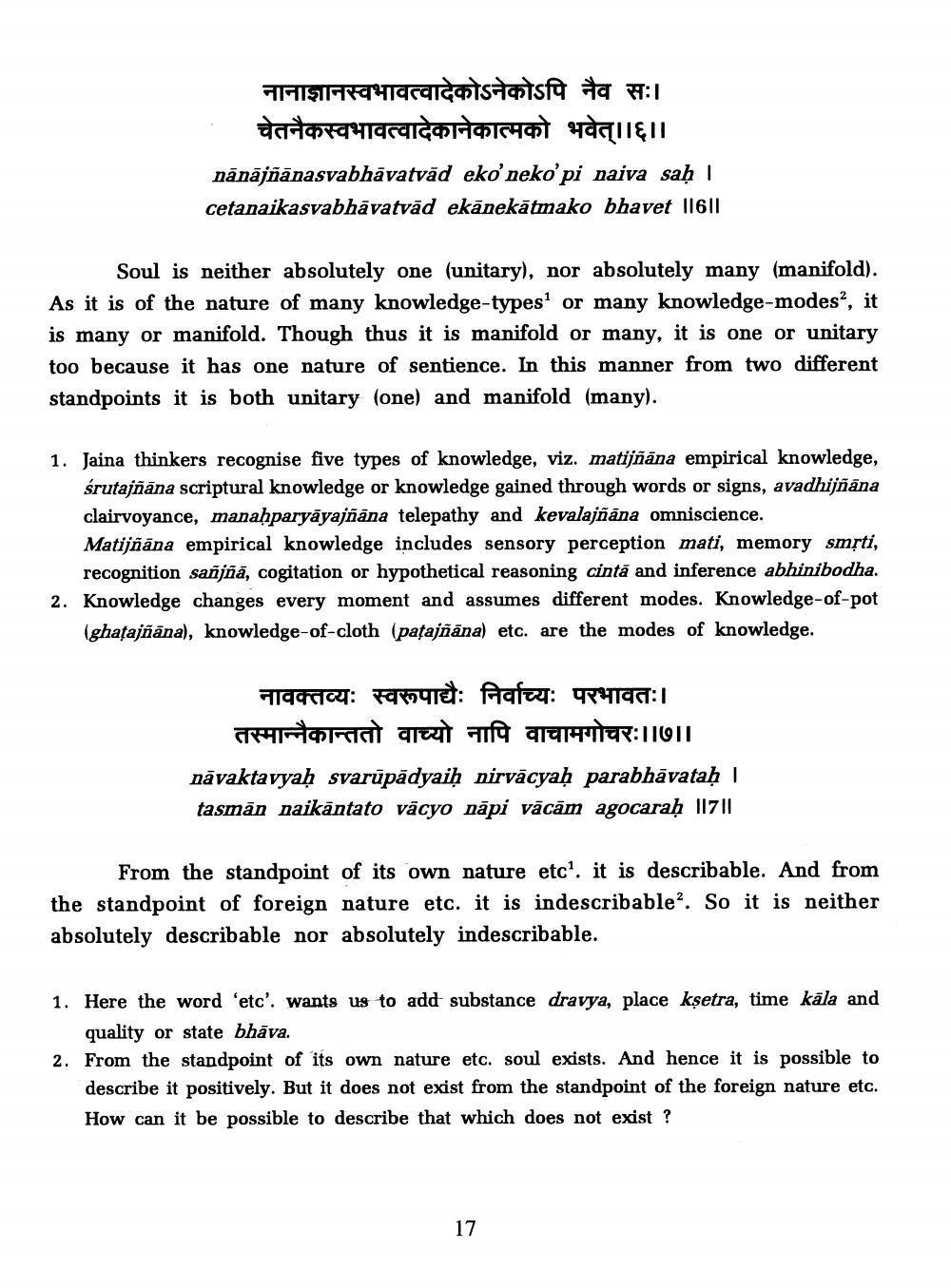________________
नानाज्ञानस्वभावत्वादेकोऽनेकोऽपि नैव सः । चेतनैकस्वभावत्वादेकानेकात्मको भवेत् ॥ ६ ॥
nānājñānasvabhāvatvad eko' neko'pi naiva saḥ | cetanaikasvabhāvatvād ekānekātmako bhavet ||6||
Soul is neither absolutely one (unitary), nor absolutely many (manifold). As it is of the nature of many knowledge-types1 or many knowledge-modes2, it is many or manifold. Though thus it is manifold or many, it is one or unitary too because it has one nature of sentience. In this manner from two different standpoints it is both unitary (one) and manifold (many).
1. Jaina thinkers recognise five types of knowledge, viz. matijñāna empirical knowledge, śrutajñāna scriptural knowledge or knowledge gained through words or signs, avadhijñāna clairvoyance, manaḥparyāyajñāna telepathy and kevalajñāna omniscience.
Matijñāna empirical knowledge includes sensory perception mati, memory smṛti, recognition sañjñā, cogitation or hypothetical reasoning cinta and inference abhinibodha. 2. Knowledge changes every moment and assumes different modes. Knowledge-of-pot (ghaṭajñāna), knowledge-of-cloth (paṭajñāna) etc. are the modes of knowledge.
नावक्तव्यः स्वरूपाद्यैः निर्वाच्यः परभावतः । तस्मान्नैकान्ततो वाच्यो नापि वाचामगोचरः ।।७।।
navaktavyaḥ svarupadyaiḥ nirvācyaḥ parabhavataḥ | tasman naikāntato vācyo napi vācām agocaraḥ ||7||
From the standpoint of its own nature etc'. it is describable. And from the standpoint of foreign nature etc. it is indescribable. So it is neither absolutely describable nor absolutely indescribable.
1. Here the word 'etc'. wants us to add substance dravya, place kṣetra, time kala and quality or state bhāva.
2. From the standpoint of its own nature etc. soul exists. And hence it is possible to describe it positively. But it does not exist from the standpoint of the foreign nature etc. How can it be possible to describe that which does not exist ?
17




